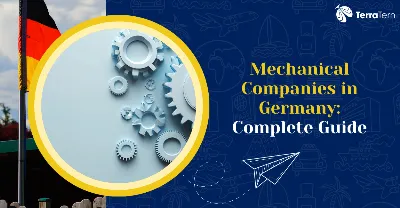Key Highlights
- What Are the Top Mechanical Companies in Germany in 2025?
- Which Companies Lead Germany's Mechanical Engineering Industry in 2025?
- What Industries Do Mechanical Companies in Germany Serve in 2025?
- Where Are Germany's Mechanical Engineering Companies Located?
- How Large Is Germany's Mechanical Engineering Workforce? Experts Insights 2025
- What Products and Technologies Do These Companies Manufacture in Germany?
- What Is the Export Performance of German Mechanical Companies?
- How Are German Mechanical Companies Adapting to Industry 4.0?
- What Are the Revenue Trends for Top Mechanical Engineering Companies?
- How Can International Companies Partner with German Mechanical Firms?
- What Sustainability Initiatives Are German Mechanical Companies Pursuing in 2025?
- How Does TerraTern Support Professionals Seeking Opportunities in Germany?
- Conclusion
Mechanical companies in Germany are the industrial powerhouse of Europe, and Germany has over 6,500 companies with specialisations in Mechanical Engineering that are employing 1 million people. From international heavyweights like Siemens and ThyssenKrupp to innovative mid-sized companies, the list of mechanical companies includes everything from manufacturing system providers to machine tools and automation to industrial solutions.
What Are the Top Mechanical Companies in Germany in 2025?
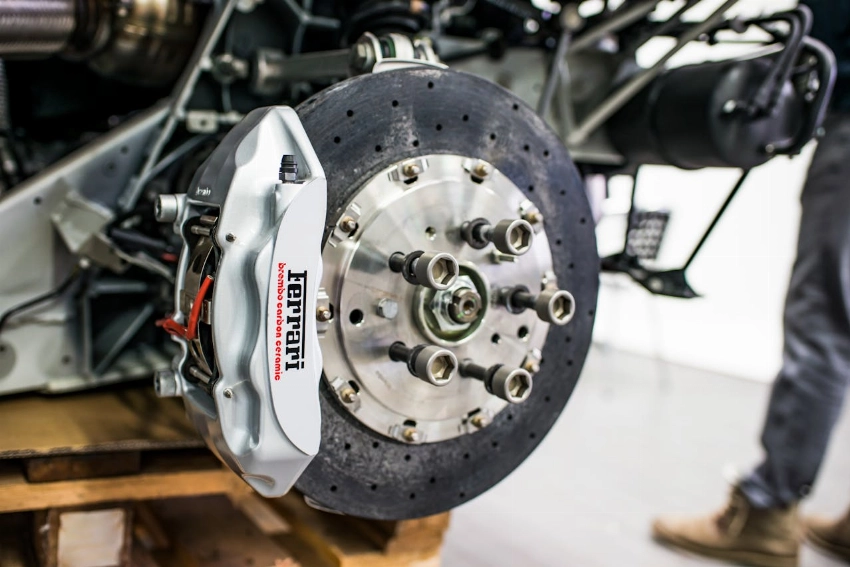
The top mechanical companies in Germany are as follows.
1. Siemens AG (Munich/Berlin)
-
It is Germany's largest machinery engineering company based on sales, with revenue of EUR75.93 billion (fiscal year 2024).
-
There are around 385,000 human beings on this planet.
-
More importantly, the automation, digitisation, electrification, mobility and medical technology.
-
Order book for Digital Industries EUR9 billion (EUR6 billion for 2025).
-
Products: transformers, generators, turbines, compressors, industrial automation systems;
2. KION GROUP AG
-
Has experience with forklifts and warehouse technology.
-
Revenue: INR 11.434 billion (2023)
-
Solutions: Material and warehouse handling, material handling systems, industrial truck applications, automated warehouse material handling systems
3. ANDRITZ Schuler GmbH
-
Division of labour in technological development and industrial presses.
-
Revenue INR 8.660 billion (2023)
4. GEA Group AG (Düsseldorf)
-
Revenue EUR5.469 billion (2023) and over 18,000 employees.
-
five business units Refrigeration, Liquid & Powder, Food & Healthcare, Farm Technologies, Separation & Flow;
-
Specialisation: food production, production equipment, packaging solutions
5. Exyte GmbH
-
The contractor specialised in the production of high-tech cleaning rooms and high-tech complexes.
-
Revenue INR 5.042 billion (2023)
6. ThyssenKrupp AG (Essen)
-
The company was established in 1997 as a result of the Thyssen and Krupp-Hoesch takeovers.
-
Employs 162,000 people worldwide
-
There is an industrial plant construction, and the focus is on the steel industry.
-
The Industrial Solutions business offers plants to the chemical, fertiliser, mining, steel and cement industries.
7. Enercon GmbH (Aurich)
-
Founded in 1984, 14,000+ Renewable energy experts
-
Global business production of wind turbines.
-
Other applications include hydro power, seawater desalination, and crane machines.
8. Krones AG (Neutraubling, Bavaria)
-
Food industry packaging machines manufacturer for the top-line packaging.
-
Employees 16,000 (11,000 in Germany)
-
Revenue over EUR4 billion
-
Bouchage stations, automatic packaging compartments and bottling stations.
9. BAADER
One of the 50 leading mechanical engineering companies in Germany, according to Markt und Mittelstand magazine.
Also Read: Top Countries For Mechanical Engineers To Work
Which Companies Lead Germany's Mechanical Engineering Industry in 2025?
This chapter provides a comprehensive overview of the largest and most significant German mechanical companies, focusing on their revenue, employment, core areas of activity, and market position in production systems, machine tools, construction machinery, energy systems, and environmental technology.
What Makes Siemens AG the Largest Mechanical Company in Germany?
Siemens AG is the largest mechanical company in Germany. Its areas of business are as follows.
-
Siemens AG (Munich/Berlin): Germany's largest Mechanical Engineering Company
-
Revenue: EUR75.93 billion (FY 2024 (excluding continents rule revision), on a continued operations basis)
-
Employees: 385,000 worldwide
-
Digital Industries Order Book: EUR9 billion, out of which EUR6 billion is dedicated to 2025.
-
Business Areas: Automation behaviour, digitalisation, electrification, mobility, and medical technology.
-
Core Products: Generators, transformers, compressors, special machines, turbines, etc.
-
Industrial Automation: Software solutions, digitisation of machine processes, technological leadership.
-
Financial Performance: Software growth of Digital Industries is in double digits during the fiscal year 2024
-
Market Positioning: Global industry leader and market pioneer in mechanical engineering in Germany.
How Does ThyssenKrupp AG Contribute to German Mechanical Engineering?
ThyssenKrupp AG's effect on German mechanical engineering is as follows:
-
ThyssenKrupp AG (Essen): World's top manufacturer of steel and industrial solutions
-
ThyssenKrupp: Creation of a merger between Thyssen and Krupp-Hoesch steel groups in 1997.
-
Employees: 162,000 worldwide
-
Primary Business: Steel making and construction of industrial plants
-
The Industrial Solutions Division provides heavy plants for chemical, fertiliser, mining, steel, cement, and other industries.
-
Particularisation: Construction of industrial plants, parts of industrial plants, heavy industry
-
Market Focus: Metallurgy, industrial installations, and infrastructures.
-
Global Presence: Active in several countries in the heavy industries
What Products and Services Does Robert Bosch GmbH Offer?
The list of products and services offered by robert bosch GmbH is as follows.
-
Robert Bosch GmbH (Stuttgart, Baden-Württemberg): Leading the Way in Precision Engineering and Automation
-
Founding: 1886 ("Workshop for Precision Mechanics and Electrical Engineering");
-
Revenue: EUR90.3 billion (2024)
-
Employees: 418,000 (December 31, 2024) Worldwide;
-
R&D Team: 87,000 associates in 136 locations worldwide
-
Investments in R&D: EUR 7.8 billion in 2024 (1 out of 5 associates is involved in R&D)
-
Industries: Mobility, Industrial technology, Consumer goods, Energy and Building technology.
-
Battery Manufacturing: Battery manufacturing systems, eDrive solutions, fuel cells, hydrogen production equipment, sensors & electronics, spontaneous engineering products:
-
Industrial Solution: Assembly and test systems, manufacturing equipment, automation, advanced manufacturing techniques;
-
Specialisations: Automotive technology, industrial automation, electromobility, hydrogen technology, precision engineering
-
Global Presence: 490 subsidiary and regional companies in more than 60 countries
-
Innovation Area: Sensor technology, software, connectivity, artificial intelligence, and sustainable products
Which Specialised Mechanical Companies Excel in Germany?
The specialised mechanical companies that excel in Germany are as follows.
|
Company |
Location |
Specialization |
Key Metrics |
Sector Applications |
|
GEA Group AG |
Düsseldorf |
Food processing and pharmaceutical machinery |
Revenue: €5.469 billion (2023); Employees: 18,000+; EBITDA margin: 16.5% (Q2 2025); ROCE: 35.3% |
Food production, beverage processing, pharmaceutical equipment, packaging solutions, refrigeration technology |
|
Krones AG |
Neutraubling, Bavaria |
Packaging and filling systems |
Revenue: Over €4 billion; Employees: 16,000 (11,000 in Germany); Market cap: $5.35 billion |
Beverage bottling, food processing, automated packaging, production lines, filling equipment |
|
Enercon GmbH |
Aurich, East Frisia |
Renewable energy systems |
Founded: 1984; Employees: 14,000+ worldwide |
Wind turbines, hydropower, seawater desalination, ship transport, crane technology |
|
Jungheinrich |
Hamburg |
Material handling and intralogistics |
Revenue: €1.3 billion (Q1 2025, +2.4% YoY); Target: €10 billion by 2030; Orders: €1.39 billion (+1.2% YoY) |
Warehouse automation, forklifts, electric counterbalanced trucks, automated storage systems, lithium-ion technology |
|
SMS Group |
Mönchengladbach, North Rhine-Westphalia |
Metallurgical plant technology |
Employees: 10,000+; Heritage: 130+ years |
Steel and nonferrous metals industry, rolling mill technology, tube and long product technology, plant construction |
|
BOMAG GmbH |
Boppard |
Compaction and road construction technology |
Heritage: 60+ years as world market leader |
Soil compaction, asphalt construction, single drum rollers, vibratory plates, polygonal rollers, road building, airport construction |
What Industries Do Mechanical Companies in Germany Serve in 2025?

Industries that mechanical companies in Germany serve are as follows:
-
Automotive: The industry serves the automotive sector by providing assembly lines, robotics, CNC machining centres, testing rigs, painting systems, and battery manufacturing equipment. BMW, Volkswagen, and Mercedes-Benz use these through partnerships with Siemens, Dürr, and Bosch Industrial Technology.
-
Food & Beverage: The industry serves food processing through filling machines, packaging systems, separators, homogenisers, and refrigeration from GEA Group and Krones AG, enabling hygienic, high-capacity beverage and dairy production lines across global plants.
-
Energy & Renewables: Industry serves energy by supplying wind turbines (Enercon), hydrogen production and fuel-cell systems (Bosch), grid automation, and energy storage manufacturing solutions aligned with 2025 green transition initiatives.
-
Chemicals & Pharma: Industry serves chemicals and pharmaceuticals through process equipment, liquid and powder technologies, pharma-grade refrigeration, and sterile packaging solutions led by GEA’s specialised segments.
-
Metals & Construction: Industry serves metals and construction with metallurgical plants, rolling mills, and compaction and road-building machinery from SMS group and BOMAG for infrastructure, ports, airports, and large civil projects.
-
Logistics & Manufacturing: The industry provides industrial machinery and manufacturing solutions, including material handling systems, forklifts, and automated warehouses from Jungheinrich, as well as factory digitalisation and control systems from Siemens and Bosch.
How Do Mechanical Companies Support Germany's Automotive Industry?
Mechanical companies that support Germany's automotive industry are as follows.
-
Advanced Automation: Body-in-white robotics, conveyance, PLCs, edge controls, and AI-enabled quality systems from Siemens Digital Industries and Bosch Manufacturing Solutions for BMW, VW, and Mercedes plants.
-
Paint and Final Assembly: Turnkey painting lines, sealing, curing, and emission-reduction systems from Dürr for high-throughput vehicle manufacturing and e-mobility platforms.
-
Powertrain and Batteries: Battery manufacturing systems, eDrive assembly, hydrogen stacks, and fuel-cell components from Bosch Industrial Technology for electrified powertrains.
-
Testing and Validation: End-of-line testing, NVH rigs, and diagnostics integrated into Industry 4.0 lines for traceability and predictive maintenance across OEM facilities.
What Role Do These Companies Play in Renewable Energy?
The role these companies play in renewable energy is as follows:
-
Wind: Enercon designs and builds complete wind turbine systems and components with global deployment and German engineering support capacity.
-
Hydrogen: Bosch scales hydrogen production technology, fuel cells, and component manufacturing systems showcased at Hannover Messe 2025 for industrial decarbonization.
-
Solar and Storage: Siemens provides grid automation, power electronics, and factory digitalisation, which are used in solar equipment manufacturing and energy storage integration.
-
Low-Emission Construction: BOMAG’s e-PERFORMANCE compaction equipment and fuel-saving control systems reduce onsite emissions for renewable infrastructure builds.
Which Companies Specialise in Food and Beverage Processing in Germany?
The following companies specialise in food and beverage processing in Germany:
-
GEA Group (Düsseldorf): Specialisation in separators, homogenisers, evaporation, aseptic processing, pharma refrigeration; 2025 raised outlook and strong EBITDA KPIs.
-
Krones AG (Neutraubling): Complete packaging and filling lines for beverages and food with 16,000 employees and a multi-billion-dollar revenue scale.
-
Application Examples: High-speed bottling and aseptic filling lines, CIP/SIP hygienic standards, dairy powder lines, brewery processing, cold-chain refrigeration.
-
Comparative Note: These leaders in the list of mechanical companies in Germany are frequently cited among the top mechanical companies in Germany for food and beverage systems.
Also Read: Find Mechanical Engineering Jobs in Germany: A Guide
Where Are Germany's Mechanical Engineering Companies Located?
Mechanical engineering in Germany is located at the following places:
-
Baden-Württemberg leads with 348,000+ employees, €85.4 billion turnover, and over one-third of Germany's largest mechanical engineering companies concentrated in the Stuttgart region and surrounding areas.
-
Bavaria ranks second with 236,800 employees (18% of total industrial employment), 921 companies generating €54.4 billion turnover in 2019, and 65.3% export orientation across the Swabia, Lower Franconia, and Upper Bavaria districts.
-
North Rhine-Westphalia holds third position with major industrial centres in Düsseldorf (GEA Group), Essen (ThyssenKrupp), and Mönchengladbach (SMS Group), hosting global leaders like Siemens and a diverse range of mechanical and industrial engineering firms.
-
Stuttgart is confirmed as a hotspot with 23 of Germany's top 100 mechanical engineering companies headquartered within a 50km radius, creating a densely connected network of suppliers, research institutes, and service providers.
-
Germany hosts approximately 1,500 "hidden champions" (global market leaders in niche markets), with the highest concentrations in Baden-Württemberg, Bavaria, and specialised regional clusters like Heilbronn-Franken and Main Franconia.
-
Baden-Württemberg dominates machine tool production with the highest share in 2021; Bavaria focuses on drive technology, ventilation, power systems, pumps, and compressors; NRW concentrates on steel, metallurgy, and heavy industrial plants.
Why Is Baden-Württemberg Germany's Mechanical Engineering Hub?
Baden-Württemberg is a mechanical engineering hub due to the following reasons:
-
Company Concentration: Over one-third of the Germany mechanical companies are headquartered in Baden-Württemberg, making it the most important industrial location with 348,000+ employees.
-
Innovation Investment: Average 6% of revenue invested in research and development, establishing an undisputed position as Germany's technology leader in machinery manufacturing.
-
Stuttgart Region Dominance: 23 of the top 100 companies are located within a 50km radius, including Robert Bosch GmbH, Daimler AG (Mercedes-Benz), Porsche AG, Mahle GmbH, and ZF Friedrichshafen.
-
Education and Training: 5% of turnover is invested in employee training and further education, supported by universities and research institutes providing innovative, future-oriented programs.
-
Industry 4.0 Leadership: "Alliance Industry 4.0" initiative bundles competencies for digital transformation with strong networking between mechanical engineering companies and suppliers, creating interconnected clusters.
-
University-Industry Partnerships: Excellent networking between research institutes and the business community facilitates knowledge transfer, specialist retention, and the promotion of university spin-offs and start-ups.
What Companies Are Based in Bavaria and North Rhine-Westphalia?
Bavaria - Munich and Upper Bavaria companies are:
-
Siemens AG (Munich/Berlin): €75.93 billion revenue, 385,000 employees worldwide, Germany's largest mechanical engineering company.
-
BMW Group (Munich): Global automotive manufacturer with mechanical engineering and eDrive technology divisions.
-
MAN Energy Solutions (Augsburg): Industrial power systems, turbines, and propulsion technology.
-
Regional Distribution: Companies concentrated in Upper Bavaria (Munich), Swabia, and Lower Franconia administrative districts.
-
Sector Focus: Drive technology, general ventilation technology, power systems (engines and turbines), pumps and compressors.
-
Employment Scale: 236,800 employees accounting for 18% of total Bavarian industrial jobs, generating €54.4 billion turnover with 65.3% export orientation.
North Rhine-Westphalia - Düsseldorf, Essen, Cologne
-
ThyssenKrupp AG (Essen): 162,000 employees worldwide, steel production and industrial plant construction.
-
GEA Group AG (Düsseldorf): €5.469 billion revenue, 18,000+ employees, food processing and pharmaceutical machinery leader.
-
SMS Group (Mönchengladbach): 10,000+ employees, metallurgical plant technology and rolling mills.
-
Jungheinrich (Hamburg Headquarters, NRW Operations): Material handling and warehouse automation with €1.3 billion Q1 2025 revenue.
-
Regional Characteristics: A Diverse range of global leaders, including Siemens operations and specialised mechanical and industrial engineering companies.
-
Industrial Legacy: Strong steel, metallurgy, and heavy industrial manufacturing tradition supporting comprehensive supply chains.
How Large Is Germany's Mechanical Engineering Workforce? Experts Insights 2025
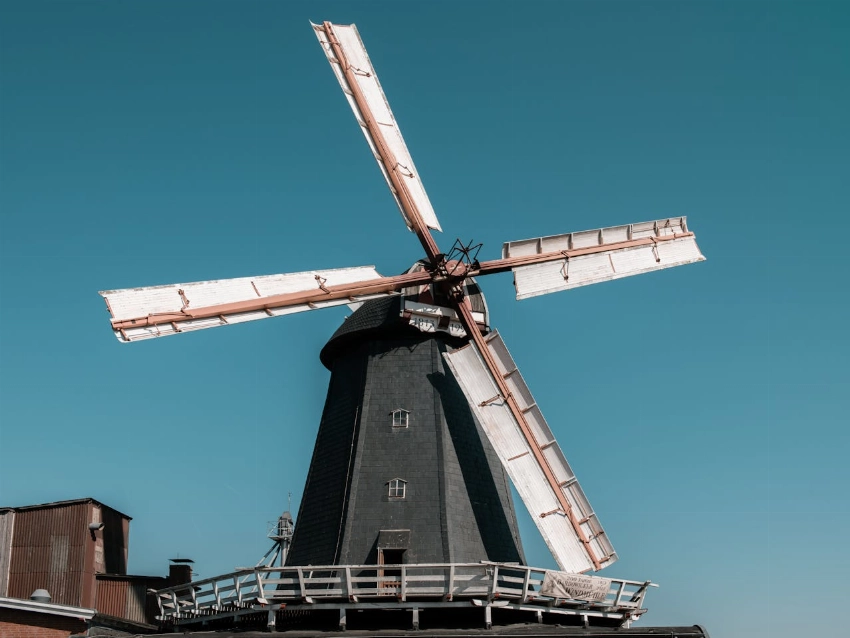
The German mechanical workforce is as follows.
-
Employment Scale: Over 1 million people employed across 6,500+ German mechanical companies, making it the most significant engineering employer and second-largest industrial segment after automotive manufacturing.
-
Demographic Challenge: 296,000 employees (25% of the workforce) expected to retire within the next ten years, creating substantial replacement demand for skilled engineers and technical specialists.
-
Regional Employment Distribution: Bavaria employs 236,800 mechanical engineers (18% of the state's industrial workforce), while Baden-Württemberg employs over 348,000, generating €85.4 billion in turnover in Germany's most concentrated mechanical engineering hub.
-
Job Market Dynamics: Strong demand for skilled mechanical engineers persists despite the manufacturing sector reducing employment by 120,000 workers over the past twelve months (March 2025), driven by needs in automotive, aerospace, renewable energy, and Industry 4.0 transformation.
-
Global Competitiveness: While German mechanical engineering production declined 5.7% in 2024, with a 0.6% further decline forecast for 2025, the worldwide industry is expected to grow 3.6%, highlighting the need among top mechanical companies for workforce transformation and digitalisation strategies.
What Skills Do German Mechanical Engineering Companies Require?
The skills that German mechanical engineering companies require are as follows.
-
Industry 4.0 Digital Competencies: CAD/CAM proficiency (SolidWorks, CATIA, Siemens NX), FEA simulation tools (ANSYS, COMSOL), programming skills (Python, MATLAB), PLC logic, IoT integration, robotics, and data-driven engineering required by mechanical companies in Germany for smart manufacturing transformation.
-
Technical Engineering Expertise: Core knowledge of mechanical, electrical, and computer science disciplines, with specialisations in process engineering, systems thinking, 3D printing, digital twins, predictive maintenance, and mechatronics, is essential for a mechanical company in Germany.
-
Language and Communication: German language proficiency (B2 level minimum) is strongly preferred; English is increasingly required for international companies and R&D roles.
-
Soft Skills and Adaptability: Problem-solving abilities, process and systems thinking, willingness to learn, adaptability to technological changes, and technical project management capabilities valued by VDMA members and industry leaders.
What Are the Salary Ranges for Mechanical Engineers in Germany?
Salaries by Experience Level are as follows.
|
Experience Level |
Annual Salary (EUR) |
Annual Salary (INR) |
Monthly Salary (EUR) |
Monthly Salary (INR) |
Growth Percentage |
|
Entry-Level (0-2 years) |
€40,000 - €52,972 |
INR 31.6 - INR 41.9 lakhs |
€3,333 - €4,414 |
INR 2.64 - INR 3.49 lakhs |
Baseline |
|
Mid-Level (3-5 years) |
€60,000 - €69,800 |
INR 47.5 - INR 55.2 lakhs |
€5,000 - €5,817 |
INR 3.96 - INR 4.60 lakhs |
+13-32% |
|
Experienced (6-10 years) |
€69,800 - €85,000 |
INR 55.2 - INR 67.2 lakhs |
€5,817 - €7,083 |
INR 4.60 - INR 5.60 lakhs |
+16-22% |
|
Senior (11-15 years) |
€76,091 - €88,317 |
INR 60.2 - INR 69.9 lakhs |
€6,341 - €7,360 |
INR 5.02 - INR 5.82 lakhs |
+9-16% |
|
Lead Engineer (16-20 years) |
€85,390 - €100,556 |
INR 67.5 - INR 79.5 lakhs |
€7,116 - €8,380 |
INR 5.63 - INR 6.63 lakhs |
+12-14% |
Also Read: Mechanical Engineer Salary in Germany: Latest Guide
What Products and Technologies Do These Companies Manufacture in Germany?
The products and technologies that these companies manufacture are as follows.
-
Machine Tools and CNC Systems: Mechanical companies in Germany produce CNC machining centres, turning machines, automatic lathes, grinding machines, and woodworking equipment. Germany's CNC market is expected to reach $2,498 million by 2030 at a 6.4% CAGR, accounting for 6.3% of the global market.
-
Production Systems and Automation: Industry leaders manufacture complete production plants, assembly lines, conveyor technology, robotics integration, and Industry 4.0 solutions incorporating AI, IoT, and innovative factory technologies for automotive, electronics, and pharmaceutical sectors.
-
Packaging and Filling Machinery: Krones AG and its specialists provide filling systems, bottling lines, labelling machines, stretch blow-moulding machines for PET bottles, bottle washers, pasteurizers, packers, and palletizers serving the beverage, brewery, dairy, and soft-drink industries.
-
Energy and Environmental Systems: It includes manufacturers of wind turbines, hydrogen production equipment, fuel cells, power systems (engines and turbines), wastewater treatment plants, and compaction technology, all essential for the renewable energy transition.
-
Specialised Industrial Equipment: Top companies in Germany produce metallurgical plants, rolling mills, food processing machinery, separators, homogenisers, material handling systems, forklifts, warehouse automation, construction machinery, and cleanroom facilities for diverse industrial applications.
Which Companies Lead in Machine Tool Manufacturing?
Companies leading in machine tool manufacturing are as follows:
-
DMG Mori Co Ltd: Global leader with 13,484 employees producing advanced CNC machining centres, turning machines, 5-axis systems, and integrated manufacturing solutions for automotive, aerospace, and precision engineering applications.
-
Trumpf Group: Specialises in laser technology, machine tools, power tools, and electronics for sheet metal processing with high-precision cutting, bending, and punching systems for metal fabrication industries.
-
Schuler Group: Focuses on forming technology, mechanical and hydraulic presses, automation systems, and complete production lines for automotive body-in-white, metal forming, and coin minting applications.
-
Heller Machine Tools: Produces horizontal machining centres, turning-boring centres, crankshaft milling systems, and flexible manufacturing systems (FMS) for automotive powertrain and component manufacturing, now part of DN Solutions.
What Automation and Robotics Solutions Are Available for Mechanical Companies in Germany?
Automation and robotics solutions available are:
-
KUKA AG: Provides industrial robots, collaborative robots (cobots), automated guided vehicles (AGVs), and complete automation solutions with Industry 4.0 connectivity for automotive welding, assembly, material handling, and electronics manufacturing.
-
Siemens Digital Industries: Delivers factory automation systems, PLCs, industrial software (TIA Portal), digital twins, edge computing, and MES solutions enabling smart factory transformation with AI-powered predictive analytics and cloud connectivity.
-
Bosch Rexroth: Manufactures drive and control technologies, hydraulics, pneumatics, linear motion systems, assembly technology, and Industry 4.0 platforms (ctrlX AUTOMATION) for flexible, connected production environments.
-
Industry 4.0 Integration: The German robotics and automation industry is characterised by the integration of AI, IoT, advanced data analytics, and cyber-physical systems, creating smart factories with increased precision, reduced labour costs, enhanced quality control, and compliance automation.
How Do Companies Specialise in Packaging and Filling Machinery?
Companies that specialise in packaging and filling machinery are as follows.
-
Krones AG Complete Solutions: Manufactures filling technology (volumetric, isobaric, hot-fill systems), stretch blow-moulding machines for PET bottles, labellers (cold glue, self-adhesive, sleeve), bottle washers, tunnel pasteurisers, inspection systems, packers, and palletisers for complete beverage production lines.
-
Product Portfolio Breadth: Krones' range extends from brewhouse technology (acquired Steinecker 1983) and material flow systems to process technology for breweries and dairies, as well as end-of-line packaging with turnkey plant solutions from raw materials to finished pallets.
-
GEA Group: Specialises in supplying aseptic filling systems, separators for dairy processing, homogenisers, evaporation systems, refrigeration technology, and pharma-grade packaging machinery, ensuring hygienic production compliant with food safety and pharmaceutical regulations.
-
Technical Capabilities: Packaging machinery achieves high-speed filling (up to 90,000 bottles/hour), precise dosing accuracy (±0.5%), multi-format flexibility, CIP/SIP cleaning integration, and IoT-enabled performance monitoring for beverage, food, and pharmaceutical applications.
-
Market Reach: German packaging machinery manufacturers serve global beverage bottlers, breweries, soft-drink companies, dairy processors, and pharmaceutical manufacturers with comprehensive after-sales service, spare parts networks, and digital support platforms.
What Is the Export Performance of German Mechanical Companies?
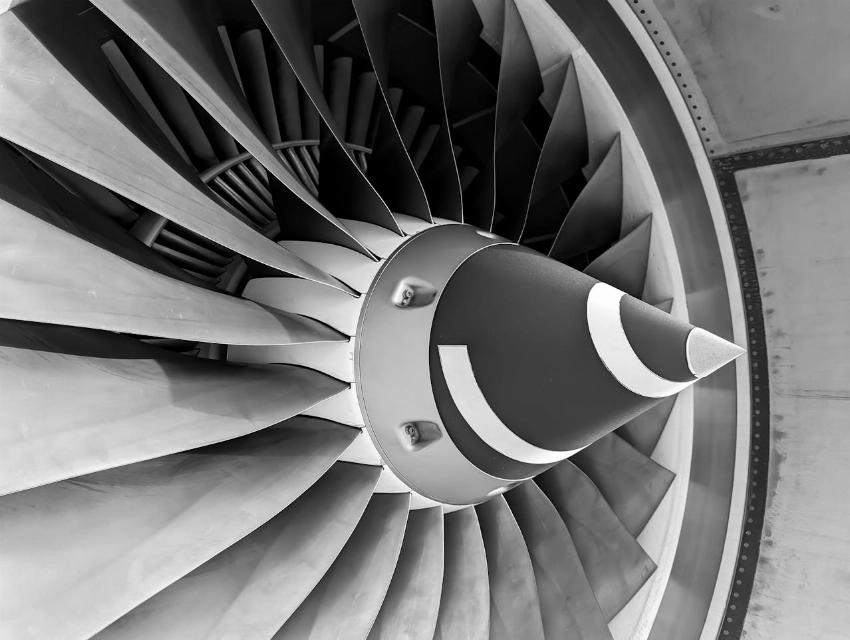
The export performance of German mechanical companies is as follows:
-
Global Market Leadership: Mechanical companies in Germany hold 16% of the global mechanical engineering market, despite representing only 1% of the world population. This establishes Germany as the world's 2nd largest machinery exporter, with total exports valued at $271.54 billion (€254 billion) in 2024.
-
Export Decline Challenges: German machinery and equipment exports declined by 5% in 2024 compared to the previous year, reflecting a 7.5% production decrease. Economic and structural difficulties dampened global demand across the automotive, construction, and industrial sectors.
-
Trade Volume Dynamics: Germany exported machinery and mechanical appliances worth €20.9 billion in February 2025, reflecting the traditional high export orientation among the list of mechanical companies in Germany serving international markets.
-
Future Outlook: While German mechanical engineering production declined 5.7% in 2024, with a further 0.6% decline forecast for 2025, worldwide production is expected to grow by 3.6%. This highlights the need for top companies in Germany to adapt strategies and address competitiveness gaps.
Which Countries Import the Most German Mechanical Engineering Products?
Countries that import the most German mechanical engineering products are:
-
United States Dominance: The USA leads as the largest importer of German machinery, with $34.17 billion (€32 billion) in annual imports, valuing German engineering expertise, precision manufacturing, and innovative technology for automotive, aerospace, and industrial applications.
-
China Strategic Market: China ranks second with $20.71 billion (€19.4 billion) in German machinery imports, despite facing economic headwinds and regional competition. It maintains a strong demand for specialised production systems and automation equipment.
-
European Union Strength: Top EU destinations include France ($19.64 billion), Poland ($14.67 billion), Netherlands ($13.21 billion), United Kingdom ($12.34 billion), Italy ($12.24 billion), Austria ($11.77 billion), Spain ($9.80 billion), and Czech Republic ($9.51 billion), collectively representing over half of German machinery exports.
-
Emerging Markets: Mercosur countries (Brazil, Argentina, Uruguay, Paraguay) represent growth opportunities, with VDMA emphasising the importance of concluding a free trade agreement to expand market access for German mechanical engineering products.
How Do German Companies Maintain Global Competitiveness?
German companies maintain global competitiveness as follows.
-
Engineering Excellence Reputation: Mechanical companies in Germany maintain a competitive advantage through precision engineering, quality standards (ISO certifications), customisation capabilities, and a decades-long reputation for reliability that commands premium pricing in global markets.
-
Innovation Investment: Industry leaders invest heavily in R&D, with Bosch allocating €7.8 billion annually (employing 1 in 5 associates in R&D). Companies in Baden-Württemberg invest 6% of their revenue in innovation, and there is continuous technology development in Industry 4.0, automation, and digitalisation.
-
Specialised Expertise: German machinery manufacturers dominate niche markets as "hidden champions" with approximately 1,500 global market leaders in specialised segments, leveraging deep technical knowledge, vertical integration, and sector-specific solutions unavailable from competitors.
-
Service Networks: Top companies in Germany establish comprehensive after-sales service infrastructure, spare parts availability, digital support platforms, and local technical teams, ensuring minimal downtime and long-term customer relationships across 200+ countries.
Also Read: Best Universities in Germany for Mechanical Engineering
How Are German Mechanical Companies Adapting to Industry 4.0?
German mechanical companies adapting to Industry 4.0 are as follows:
-
Digital Transformation Investment: Mechanical companies in Germany are investing heavily in Industry 4.0 technologies, with digitalisation investments growing at over 8% CAGR through 2025. Eighty per cent of manufacturers aim to digitalise entire value chains by 2024, integrating IoT, AI, machine learning, and cloud computing.
-
Smart Factory Implementation: Companies in Germany are adopting innovative manufacturing solutions, such as Siemens' award-winning Amberg plant, which uses dashboards for real-time machine data evaluation, collaborative robots, driverless transport systems, and zero-defect production goals powered by artificial intelligence.
-
Industry 4.0 core Technologies: Companies implement monitoring systems identifying error sources in advance, automated reordering through chip-based product tracking, fully automated storage systems, and networked integrated industry solutions enabling "batch size 1" customised production at mass-production costs.
-
Competitive Positioning: While top mechanical companies lead in precision engineering reputation, digital transformation addresses productivity gaps. German automotive competitiveness, rated 3+ on school grades, requires catching up in software, battery technology, and automation to compete with international rivals.
What Digital Technologies Are Companies Implementing?
Digital technologies that companies are implementing are as follows.
-
IoT and Connectivity Infrastructure: Factories deploy IoT sensors to monitor temperature, vibration, quality, and energy use. Data is transmitted via 5G wireless networks and industrial Ethernet to edge computers or cloud servers, enabling real-time equipment status, production progress tracking, and predictive insights.
-
Digital Twins and Simulation: Mechanical companies in Germany create digital twins—real-time digital models of machines or entire production lines mirroring their physical state. These models allow AI algorithms to predict future behaviour, identify optimisation potential before production, and enable simulation-based design optimisation, reducing costs.
-
AI-Powered Analytics: Siemens' MindSphere cloud platform collects performance, product, and quality data from machines, with artificial intelligence analysing vast amounts of data to identify optimisation potential, enable zero-defect production goals, and support AI-guided quality control systems.
-
Predictive Maintenance Systems: Smart factories use smart sensors and predictive maintenance algorithms to analyse machine data, pre-emptively scheduling component replacements before failures occur. This minimises downtime, enhances system reliability, and reduces maintenance costs across production facilities.
How Is Electro-Mobility Transforming Mechanical Engineering?
Electro-mobility transforming mechanical engineering are as follows:
-
Battery Manufacturing Systems: Top mechanical companies, including Bosch, have developed battery manufacturing equipment, eDrive assembly systems, and production lines for electric vehicle components. This is because the automotive industry is transitioning from combustion engines to electrified powertrains, which require new machinery.
-
Hydrogen Technology Infrastructure: Bosch showcased hydrogen production technology and fuel-cell component manufacturing systems at Hannover Messe 2025, positioning mechanical engineering firms to supply equipment for the hydrogen economy, including electrolysers, fuel cells, and storage systems.
-
Manufacturing Process Redesign: The German automotive industry must radically redesign manufacturing processes to incorporate more automation, cost-effective e-car production solutions, and specialised machinery for battery technology and electric powertrains. This will help them compete with international manufacturers by 2035.
-
Competitiveness Challenges: VDE study rated German automotive electromobility competitiveness as 3+ (school grade) with urgent need to catch up in software integration, battery production equipment, and automated assembly systems as competition from China intensifies in the mass-market electric vehicle segment.
What Are the Revenue Trends for Top Mechanical Engineering Companies?

The revenue trends for the top mechanical engineering companies are as follows.
-
Aggregate Financial Performance: Top 100 mechanical companies in Germany generated €228 billion in revenue in 2018 with a 3.8% growth rate outpacing the overall mechanical engineering market (2.8%) and the German economy (1.5%), employing 281,000 people with an average EBIT margin of 6.7%.
-
2025 Production Decline: German mechanical engineering production declined 5.7% in 2024, with VDMA forecasting a further 5% decline in 2025 (revised from an earlier 2% projection) due to weak orders, trade conflicts, high costs, and investment hesitancy across domestic and international markets.
-
Export Revenue Challenges: Machinery exports fell approximately 5% in 2024 due to weak demand, with the first nine months showing continued weakness. VDMA reports 9% fewer orders in October 2024 compared to the previous year, as customers remain hesitant to make new investments.
-
Labour Productivity Gains: The list of mechanical companies in Germany increased revenue per employee by 0.8% in 2018, while overall sector productivity declined by 0.5%. This demonstrates the efficiency advantages of leading companies through automation, digitalisation, and operational excellence initiatives.
Which Companies Show the Strongest Revenue Growth?
Companies that show the most substantial revenue growth are as follows.
-
GEA Group Exceptional Performance: GEA raised its 2025 forecast to 2-4% organic revenue growth (from 1-4%), with EBITDA margin upgraded to 16.2-16.4% (from 15.6-16.0%) and ROCE improved to 34-38% (from 30-35%) following strong H1 2025 operational performance.
-
Siemens Sustained Growth: Siemens reported that Q3 2025 orders rose 28% on a comparable basis to €24.7 billion, while revenue grew by 5% on a similar basis. The company is maintaining its full-year guidance of 3-7% comparable revenue growth and a basic EPS range of €10.40-11.00.
-
Historical Growth Leaders: Dürr AG achieved an 8.9% growth rate in 2018 (€3.870 billion revenue), Krones AG grew 4.4% (€3.854 billion), and GEA Group expanded 4.9% (€4.828 billion), outperforming industry averages among top mechanical companies.
-
Service Business Expansion: GEA increased service revenue share to 41.7% in Q1 2025 (from 38.0% in Q1 2024), leveraging the above-average profitability of after-sales services, spare parts, and digital support platforms, driving margin improvement.
-
Regional Growth Drivers: Companies achieving the strongest growth focus on North America (the largest export market at $34.17 billion), emerging markets, and diversified geographic portfolios, offsetting weakness in China and domestic German demand.
What Factors Drive Profitability in German Mechanical Engineering?
Factors that drive profitability in German mechanical engineering are as follows.
-
Specialisation and Niche Dominance: Germany's approximately 1,500 "hidden champions" achieve premium margins through specialised expertise in niche markets, technical leadership, customisation capabilities, and limited competition, enabling pricing power unavailable to generalist manufacturers.
-
Export Orientation: High export quotas (65.3% for Bavaria's mechanical sector) and access to premium international markets, particularly the USA, Western Europe, and specialised industrial segments demanding German precision engineering and quality certifications, drive above-average profitability.
-
R&D Investment Intensity: Leading mechanical companies in Germany invest 6% of their revenue in innovation (compared to the Baden-Württemberg average), with companies like Bosch allocating €7.8 billion annually (1 in 5 associates in R&D), enabling technology leadership, patent portfolios, and differentiated product offerings.
-
Service Business Models: Companies shifting toward service revenue streams achieve higher margins. GEA's 41.7% service share, combined with above-average profitability and recurring revenue from spare parts, maintenance contracts, and digital platforms, stabilises earnings and improves ROCE.
Also Read: Top Manufacturing Companies in Germany: Expert List
How Can International Companies Partner with German Mechanical Firms?
International companies partner with German mechanical firms, which are as follows:
-
Supplier and Technology Partnerships: International companies establish supplier relationships with mechanical companies in Germany through direct sourcing of precision-engineered components, licensed technology transfers, OEM agreements, and joint development projects leveraging German engineering expertise and quality standards.
-
Joint Ventures and Equity Partnerships: Strategic partnerships include joint venture formations, minority equity investments, co-manufacturing agreements, and shared R&D facilities. These enable technology access while Germany gains market entry, capital, and complementary capabilities.
-
Distribution and Sales Agreements: International firms secure exclusive distribution rights, become authorised service partners, establish regional representation for German machinery, or create sales networks connecting mechanical companies in Germany with new geographic markets and customer segments.
-
Institutional Support Pathways: Organisations including VDMA (3,600 member companies), German Chambers of Commerce Abroad (AHKs with 150+ locations in 93 countries), and Germany Trade & Invest (GTAI) facilitate introductions, provide market intelligence, offer legal/tax guidance, and support partnership structuring with government backing.
What Are the Main Trade Fairs and Networking Events?
The principal trade fairs and networking events are as follows.
-
Hannover Messe 2025 (March 31-April 4, 2025): World's leading industrial technology trade fair featuring approximately 5,000 exhibiting companies from mechanical engineering, electrical and digital industries, and energy sector under lead theme "Industrial Transformation" with main areas including Smart Manufacturing, Digital Ecosystems, Energy for Industry, Compressed Air & Vacuum Technology, Engineered Parts & Solutions, Future Hub, and International Trade & Investment; Canada is 2025 Partner Country with conference program featuring roughly 1,600 speakers.
-
EMO Hannover 2025 (September 22-26, 2025): World's leading trade fair for production technology, celebrating its 50th anniversary under the motto "Innovate Manufacturing" featuring cutting and forming machine tools, manufacturing systems, precision tools, automated material flow, computer technology, industrial electronics, and accessories, with focus topics "The Future of Business,
-
Bauma 2025 (April 2025): World's leading construction machinery trade fair covering 614,000 m² with more than 3,200 international exhibitors showcasing construction equipment, mining machinery, building material machines, and construction vehicles, attracting global industry professionals.
-
Automatica 2027 (June 22-25, 2027): Leading trade fair for robotics, machine vision, assembly technology, and handling systems, bringing together industry leaders presenting automation solutions, collaborative robots, AI-powered quality control, and innovative factory technologies..
Which Organisations Support International Business Development?
Organisations that support international business development are as follows.
-
VDMA (Mechanical Engineering Industry Association): Founded in 1892, represents 3,600 German and European mechanical and plant engineering companies employing 3 million people in EU (1.2 million in Germany) with €748 billion turnover volume; provides Business Development services including market entry consulting, international partnership facilitation, trade fair organization, technical standards development, and industry advocacy through specialized departments and global network.
-
German Chambers of Commerce Abroad (AHKs): Network of 150+ locations across 93 countries operating under "DEinternational" brand offering market analysis, partner searches for Germany, mechanical companies in company formation assistance, legal and tax information, bookkeeping services, trade fair support (exhibitor acquisition, advertising, PR), and bilateral trade promotion coordinated by DIHK (German Chamber of Commerce and Industry) with 48,000 corporate members globally.
-
Industry Trade Associations: Sector-specific organisations (VDMA Precision Tools, VDMA Measurement and Testing Technology, VDMA Robotics + Automation) provide specialised technical expertise, standardisation coordination, technology forums, startup-corporate matchmaking programs, and niche market intelligence.
What Sustainability Initiatives Are German Mechanical Companies Pursuing in 2025?
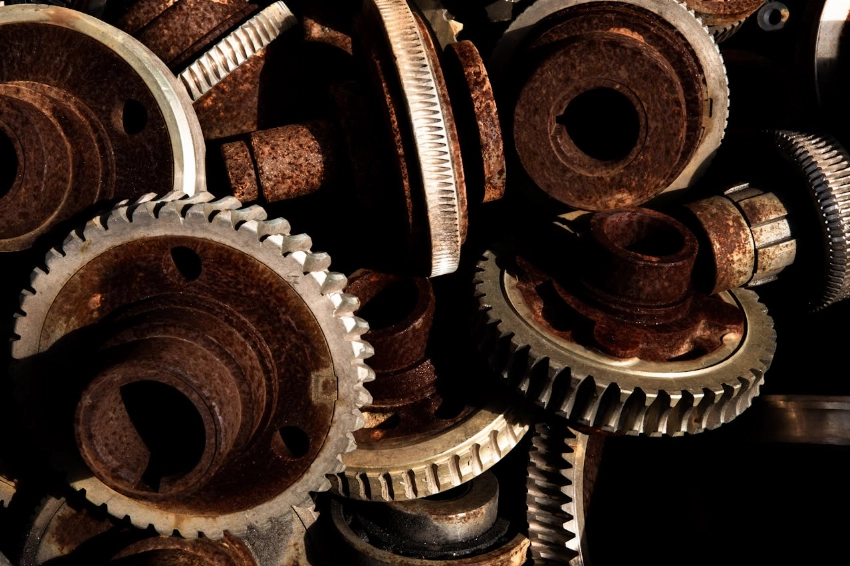
Sustainability initiatives that German mechanical companies are pursuing are as follows.
-
Climate Neutrality Commitments: Germany mechanical companies in are pursuing ambitious carbon reduction targets. GEA aims for Net Zero emissions across the entire value chain by 2040, Siemens is advancing sustainability services for ESG transformation, and CHIRON Group is achieving worldwide climate-neutral production.
-
Government Support Programs: Germany launched a €6 billion industrial decarbonization program in 2025, supporting the mechanical engineering sector transition with Climate Contracts for Difference (CCfDs) funding carbon capture/storage (CCS), utilisation (CCU), and hydrogen-based production technologies.
-
National Circular Economy Strategy: The German government's NCES mandates waste avoidance through product design optimisation, extended lifespans, repair capabilities, and material circulation.
-
ESG Integration: Top mechanical companies adopt comprehensive Environmental, Social, Governance frameworks with sustainability reports, third-party certifications, and transparency commitments, as VDMA promotes carbon management strategies highlighting mechanical engineering's role in achieving climate targets through technology provision.
How Are Companies Reducing Carbon Emissions?
Companies reducing carbon emissions are as follows:
-
Renewable Energy Transition: GEA converts production facilities country-by-country to 100% renewable electricity sources. This is achieved through solar installations, energy-efficient combined heat-power-cooling systems, LED lighting transitions, and sophisticated energy management systems, reducing consumption across manufacturing networks.
-
Factory of the Future Concept: GEA implements greenfield and brownfield projects targeting emission-neutral production with the Koszalin, Poland, facility serving as the centre of excellence, achieving climate-neutral pump production through automation, lean measures, enhanced connectivity, and flexible manufacturing.
-
Hydrogen-Based Steel Production: ThyssenKrupp Steel's tkH2Steel® project will replace coal-fired blast furnaces with hydrogen-powered direct reduction plants starting in 2027. This will save 3.5 million tons of COâ‚‚ annually (5% of Ruhr region emissions), with each ton of green hydrogen eliminating 28 tons of COâ‚‚ toward 2045 carbon neutrality.
-
Supply Chain Decarbonization: A Mechanical company in Germany requires suppliers to ensure high corporate responsibility standards while expanding co-innovation partnerships, developing sustainable solutions across networked value chains, and reducing upstream emissions (60-80% of total in mechanical engineering and vehicle manufacturing).
What Circular Economy Practices Are Being Adopted?
Circular economy practices being adopted are as follows.
-
Material Recycling Infrastructure: TOMRA Feedstock constructs a North Rhine-Westphalia facility (operational early 2026) that processes 80,000 tons of mixed plastics annually. It uses AI-powered sensors to distinguish plastic types, enabling closed-loop recycling and high-grade recycled content production.
-
Product Lifecycle Optimisation: VDMA members engineer machinery for durable products, easy repair, modular updates, and resource-efficient design, while German circular economy principles emphasise waste avoidance over end-of-life processing, prioritising product longevity and reuse models.
-
Remanufacturing and Refurbishment: Germany mechanical companies are implementing preparation-for-reuse programs, component refurbishment services, and secondary raw material integration. These efforts reduce primary resource extraction and greenhouse gas emissions from the production of virgin materials in the steel, aluminium, plastics, and cement sectors.
-
Government Incentives and Procurement: The North Rhine-Westphalia report recommends public contract tenders favouring circular solutions. Meanwhile, the National Circular Economy
Also Read: Top Oil and Gas Companies in Germany: Latest Experts Guide
How Does TerraTern Support Professionals Seeking Opportunities in Germany?
TerraTern supports professionals seeking opportunities in Germany as follows.
-
Comprehensive Visa and Immigration Services: TerraTern provides end-to-end visa consultation for professionals targeting employment with a mechanical company in Germany, offering specialised pathways including Germany Opportunity Card (1-2 month approval), Job Seeker Visa (3-6 month stay), EU Blue Card, and skilled worker visas with documented success helping 2,000+ skilled professionals migrate globally.
-
Industry-Specific Job Placement Support: TerraTern connects mechanical engineers and technical professionals with opportunities across the mechanical industry in Germany, including Siemens, Bosch, BMW, Daimler, and specialised manufacturing firms. It leverages networks with employers offering visa sponsorship and relocation assistance.
-
Language Proficiency and Interview Coaching: Services include German language training programs, mock interview preparation focused on technical and cultural aspects of German recruitment processes, and communication skills development enabling professionals to confidently engage with top mechanical companies in Germany during selection processes..
What Visa Pathways Support Employment in German Mechanical Companies?
Visa pathways to support employment in German mechanical companies are as follows.
-
Germany Opportunity Card: Points-based system allowing a 12-month stay for job search with the fastest approval timeframe of 1-2 months, enabling mechanical engineers to enter Germany, attend interviews with companies like Siemens and Bosch, and convert to a work visa upon securing employment without requiring a prior job offer.
-
Job Seeker Visa: A six-month residence permit designed for highly qualified professionals with recognised qualifications, allowing a dedicated job search period; TerraTern successfully secured approval for mechanical engineer Vikram Singh within 3 months after streamlining the qualification recognition process with German authorities.
-
EU Blue Card: Premium visa for highly skilled workers with recognised qualifications meeting minimum salary thresholds (€45,300 general, €41,041.80 for shortage occupations, including mechanical engineering), providing a fast-track permanent residence pathway, family reunification rights, and work authorisation for a mechanical company in Germany.
-
Qualification Recognition Process: TerraTern specialises in navigating German authorities' credential evaluation for Indian mechanical engineering degrees from universities, including Sikkim Manipal, ensuring qualifications meet German standards required by top mechanical companies for employment authorisation and visa approval.
How Can TerraTern Assist with Job Applications to Top Companies?
TerraTern assists with job applications to top companies as follows.
-
German-format CV Optimisation: TerraTern creates concise, reverse-chronological German-style resumes that highlight relevant mechanical engineering qualifications, technical skills, work experience, and Industry 4.0 competencies valued by mechanical companies, including Siemens, ThyssenKrupp, and GEA Group.
-
Targeted Cover Letter Development: Job search assistance team crafts compelling German cover letters emphasising candidate strengths aligned with specific job descriptions at a mechanical company in Germany, addressing employer requirements for precision engineering expertise, problem-solving abilities, and cultural fit.
-
Interview Preparation and Coaching: Mock interviews prepare candidates for technical assessments and behavioural questions common at top mechanical companies, covering cultural nuances of German interview protocols, language proficiency demonstration, and confidence-building techniques for successful candidate presentations.
Conclusion
Mechanical companies in Germany represent Europe's industrial powerhouse, with over 6,500 firms employing more than one million professionals, generating €228 billion in annual revenue. From Siemens AG's €75.93 billion operations to specialised hidden champions, the list of mechanical companies demonstrates unparalleled precision engineering expertise across automotive, renewable energy, and automation sectors.
Contact TerraTern for more information on Mechanical Companies in Germany: Complete 2025 Guide.
